This #marathonspotlight is from Fraser Clyne. The experience of Fraser throughout this blog post and his local seminars has aided numerous athletes to reach their personal goals and also reflect his successful career as an International runner for Team GB and Team Scotland.
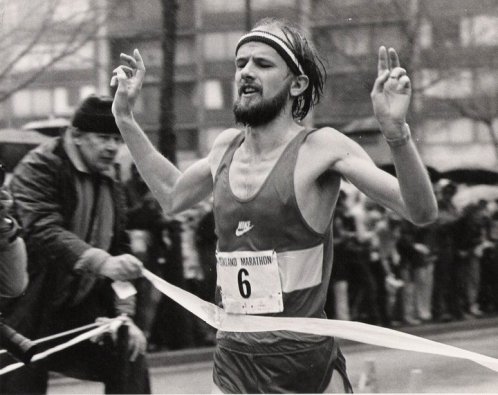
This blog post is the exact reason I created the #project345 to share knowledge, expertise and personal experience to benefit others to achieve their goals. Thank you so much and enjoy the Spotlight.
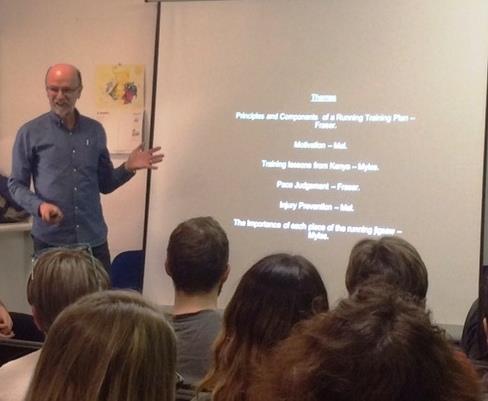
Make sure you spread the knowledge by tagging, sharing or liking the post, don’t miss the next blog post by following the blog on WordPress.
Now I pass you over to Fraser….Sit back and enjoy.
Marathons completed?
36
PB Marathon time?
2hr 11min 50sec
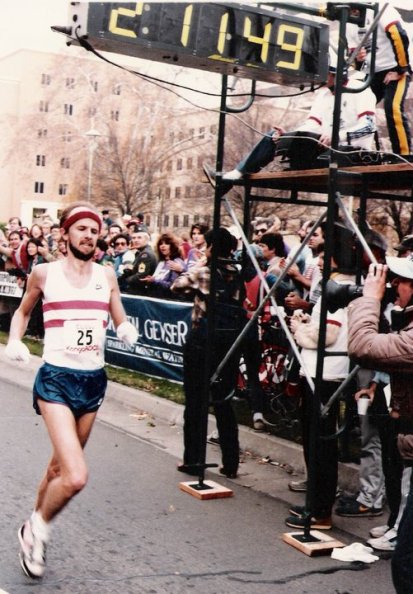
Favourite marathon and why?
That’s a tricky one. The 1983 Oakland, California marathon will always hold a special place in my heart as it was my first overseas victory and part of my prize was an all-expenses paid trip to the following year’s Glasgow marathon! (Fortunately we came to an alternative arrangement which was a bit more attractive).
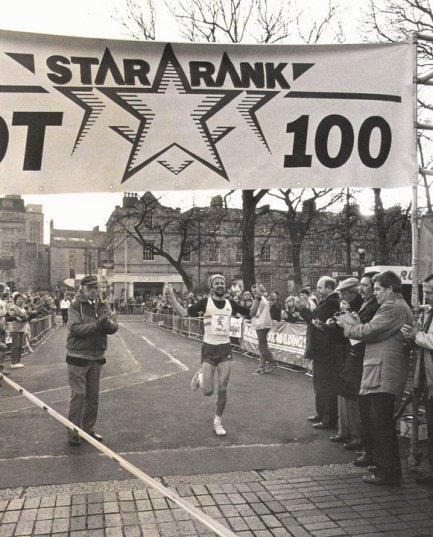
Running a PB when finishing second in the US championships at Sacramento in 1984 (losing by 24secs) was also a fantastic experience as I was ranked 15th going into the race. And, sprinting up the Kurfürstendamm to take sixth position in a highly competitive 1984 Berlin marathon is also an exciting memory.
Worst marathon memory and why?
The 1986 Edinburgh Commonwealth Games. It should have been a highlight, but turned into a nightmare. I was struggling with back problems in the lead up to the race and never felt comfortable at any stage. Coming into Meadowbank stadium at the finish was an unbelievably emotional moment with the crowd making an incredible noise (as they did for everyone in a blue vest) but I was so disappointed to finish 10th in 2:17:30. I was in tears shortly afterwards, but so honoured to have had the opportunity.
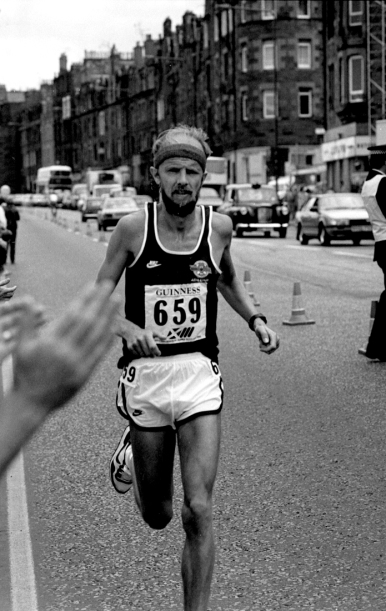
What tips would you give on constructing a training plan? 80:20, Pfitz, Hal Higdon or other?
Read all the options that are out there, listen to the experience of others then work out and test what’s best for you (perhaps in discussion with a knowledgeable coach or two). Be prepared to try different ideas. That kinda worked for me.
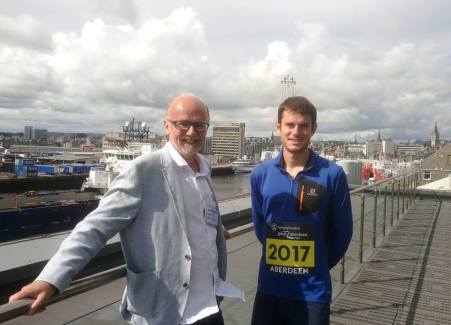
To get the best results your training plan needs to be varied and progressive, including speed, strength and endurance components. And…sufficient recovery.
Think about your goal: If it’s a 3:45 marathon, that’s 8:35 per mile. Your plan needs to reflect that.
Improve your speed by doing intervals (some of my sessions were 2x200m; 6×600 and 300m alternating; 6×1 mile).
Improve your strength and conditioning by doing hill reps or hilly runs.: throughout a marathon build-up I would always include some hill sessions, hilly fartlek and hilly long runs.
Improve your endurance by doing long runs, some or part of which should be at your target marathon pace.
Over a long build-up (and depending on what you have been doing previously) try back-to-back runs at marathon pace on successive days. Examples of these during a progressive build-up might be:
8 miles and 6 miles
8 miles and 8 miles
10 miles and 8miles
14 miles and 6 miles
16 miles and 6 miles
18 miles and 6 miles
18 miles and 8 miles
20 miles and 6 miles
You don’t need to have run 26 miles in one go to be able to race 26 miles well.
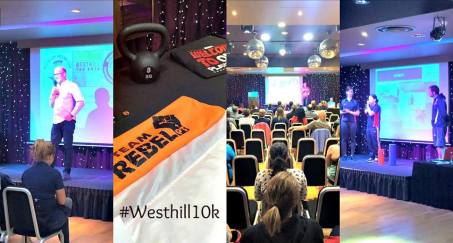
And…remember to train, not strain. Every training session is a bulding block designed to get you into peak condition for your race. Don’t race your training.
Funniest Training Moment?
This was probably with Team GB at the 1987 IAAF World Cup in Seoul. Each team was given a security officer who was told to accompany us everywhere. So, shortly after checking in to our hotel, a few of us arranged to meet in the lobby to go for a run. The security guy was waiting for us, dressed in shirt and tie,fancy suit and smartly polished leather shoes. We set off with him jogging along behind for about 100m, then he gave up. That was the last we ever saw of him on the whole trip.
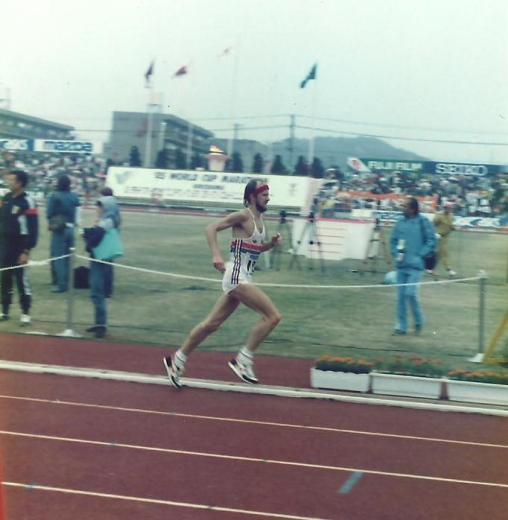
From your experience, could you go into detail on the “marathon taper” and what the best way to plan this?
There are lots of different opinions about tapering and I tried many variations over the years. In the seven weeks before my fastest marathon I ran six weeks of 100 miles with lots of high intensity sessions. In the final week I ran 4-5 miles very easy every day and the day before the race I did 20x200m reps with a 60secs recovery at about 80% effort. So, I guess I reduced the quantity in the final week by 60-70% and cutback hugely on quality. On other occasions I used a longer taper, cutting back the mileage in the second last week, but keeping some high quality sessions.
Basically, my belief is that you aren’t going to get any fitter in the final week before the race, so you need to focus on being as fresh as possible. You need to do just enough to stay sharp. Tapering allows glycogen stores to be boosted and for muscle tissue to repair and generally for your body to recover from the training you have done and to prepare itself for the race. The taper is, however, one component of the whole training plan and can’t be looked at in isolation. A good plan should include sufficient recovery between sessions throughout the build-up to avoid being over-tired too often, if at all.
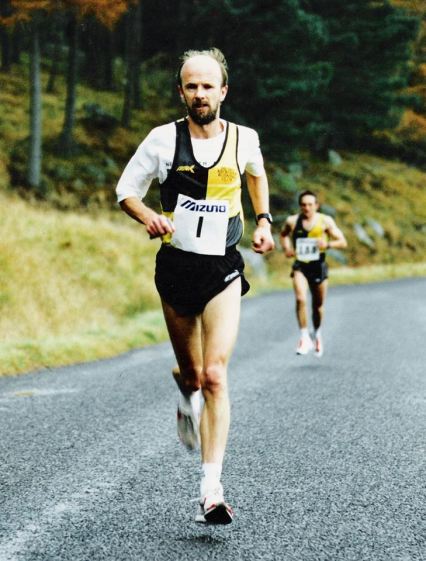
Hydration & Nutrition snack of choice on long runs?
As was common’ back in the day’, I never took anything in training. Maybe a few sips of water in a marathon, but nothing much at all. The body is amazing at adapting and I think that years of doing long runs without any drinks or supplements allowed me to cope reasonably well without needing anything in a race. I did, however, always try to ensure that I was well-hydrated and that my glycogen stores were topped up before a long run or race. Conversely, nowadays there is a huge dependency on drinks, gels, etc. People use them on short runs, long runs, all the time. So, they become dependent upon them. Like so many things, you need to go with what works for you. Everyone responds differently. Recent studies of elite marathoners show a huge variation in the amount of fuel/liquid they take on board and absorb during a race. The important thing is to work out your hydration and nutrition strategy in training, well before getting to the marathon.
Shoes – minimal or maximal ?
Shoes have changed quite considerably since my day but I trained in the Nike Pegasus, which has been on the market since the early 1980’s. I competed in lightweight specialist racing shoes (Nike Terra, Nike Spiridon Golad and Nike Duellist – all very minimal if you care to google them you might find them in an archive).P.S. no prizes for guessing who my shoe sponsor was).
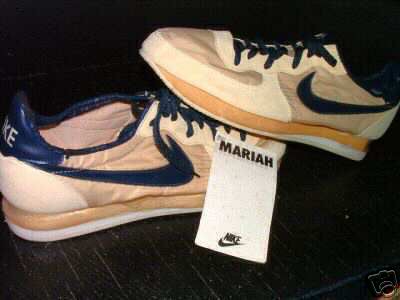
I am excited by the new Nike Zoom Vaporfly Elite (and its slightly cheaper versions) which, I believe, actually do help you run faster!
What is your Mantra a) when running b) when coaching c) Life
I guess my mantras can be applied to all three headings but if I was to break them down, they would be:
Running: Always have dreams/goals/targets. Plan how you aim to achieve these, and never let anyone tell you anything is impossible. Listen to others, but believe in yourself. It’s amazing what you can do if you are willing to learn, to experiment and to keep pushing your own personal boundaries.
Coaching: never stop learning, listening and experimenting. Celebrate successes and learn from mistakes. Always be positive.
Life: Surround yourself with positive people …they will help motivate you to achieve whatever you want to get from life. There is no place for negativity.
And….whatever you do….Enjoy it, make it fun. If you enjoy it, you’ll do it forever.
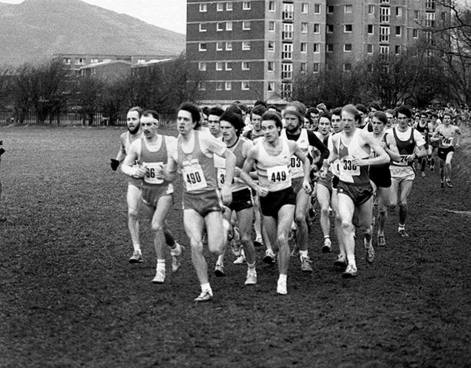
Terrain – trail, track or tarmac?
Stay off road as much as possible. My long runs were about 50% trail/50% road. Speedwork was done mainly on grass and easy recovery runs primarily on trail with a little road. I rarely trained on a running track. Off road running, apart from having a lower impact, also helps strengthen tendons and ligaments as the generally more uneven and softer surfaces force your feet to do more work and become more mobile.
Top tip for #project345 ?
Have confidence in yourself. Enjoy the big race day. It’s the day when you get the reward from all your hard training. Don’t start too fast. Most people do, but if you pace it correctly you’ll get such a lift from overtaking people in the last six miles.
Thanks Fraser for the lovely #marathonspotlight I really enjoyed putting this together with the pictures and searching through the photos from 1988 Commonwealth games and the Seoul 1987 World Cup for Marathons.
As always the resource is to share knowledge feel free to tag, share and help runners help runners.
Thanks for reading
Run Long and Prosper
James
